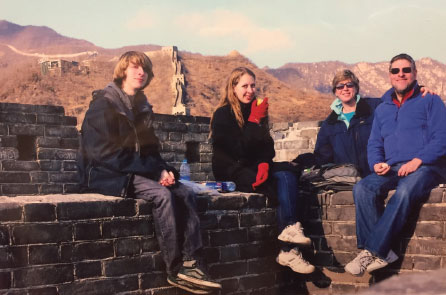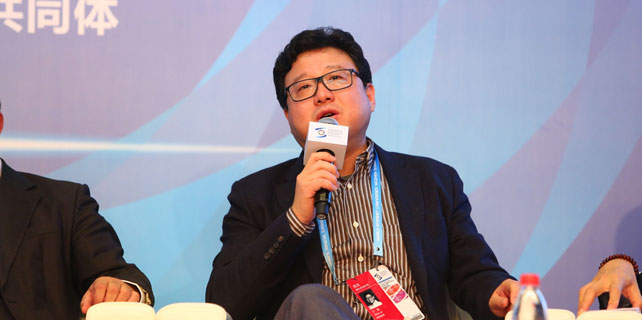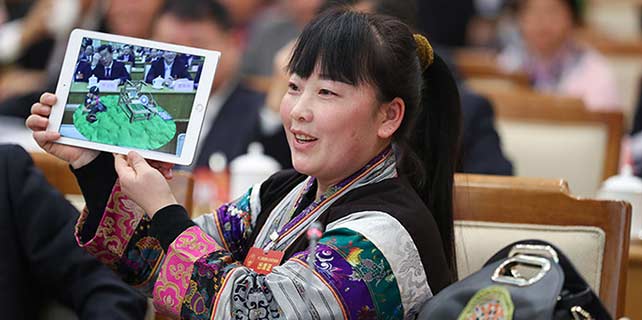An economist on China
|
David Dollar and his family pose for a photo at the Mutianyu section of the Great Wall outside Beijing in 2011. |
Trump policy
Despite tough campaign rhetoric on China, US President Donald Trump has softened his tone since taking office. "It does seem that he is approaching China cautiously, which is probably good," Dollar said.
In his view, the administration might still take some protectionist measures against China, but they will be relatively small and almost symbolic. He is sure that China will retaliate. "But if the measures are small on both sides, then it's a minor annoyance," he said.
"But I could be wrong. I do think if the Trump administration does any major protectionist measures against China, I am sure that China will retaliate in a major way. And that will be quite bad for our two economies," he said.
Dollar believes it's very hard for Trump to bring back the manufacturing jobs lost over the years. "I am pretty sure that protectionism is not going to bring jobs back," he said.
He warned that protectionism might bring some specific jobs back, but it's going to lead to the loss of other jobs - high productivity and high-paying jobs.
"So I think it's a losing strategy," he said.
Dollar finds Trump's economic officials, including internationalists and protectionists, quite inconsistent. "Usually that means within a year, some start winning, some start losing, some leave probably," he said.
In a January article, Dollar dismissed Trump's accusation of China being a currency manipulator by devaluing the RMB. He argued that China has been intervening to keep its currency high, not low.
He also called the big imbalance developed between the two countries in the 2000s as "unfortunate."
"I blame both countries because it takes mistakes on both sides to create that kind of problem," he said.
He believed the US needs more saving while the Chinese should save less but consume more. "So the irony here, the US saves too little, China saves too much. If you put US and China together, it makes a perfect economy, if we actually merge," he joked.
chenweihua@chinadailyusa.com

















